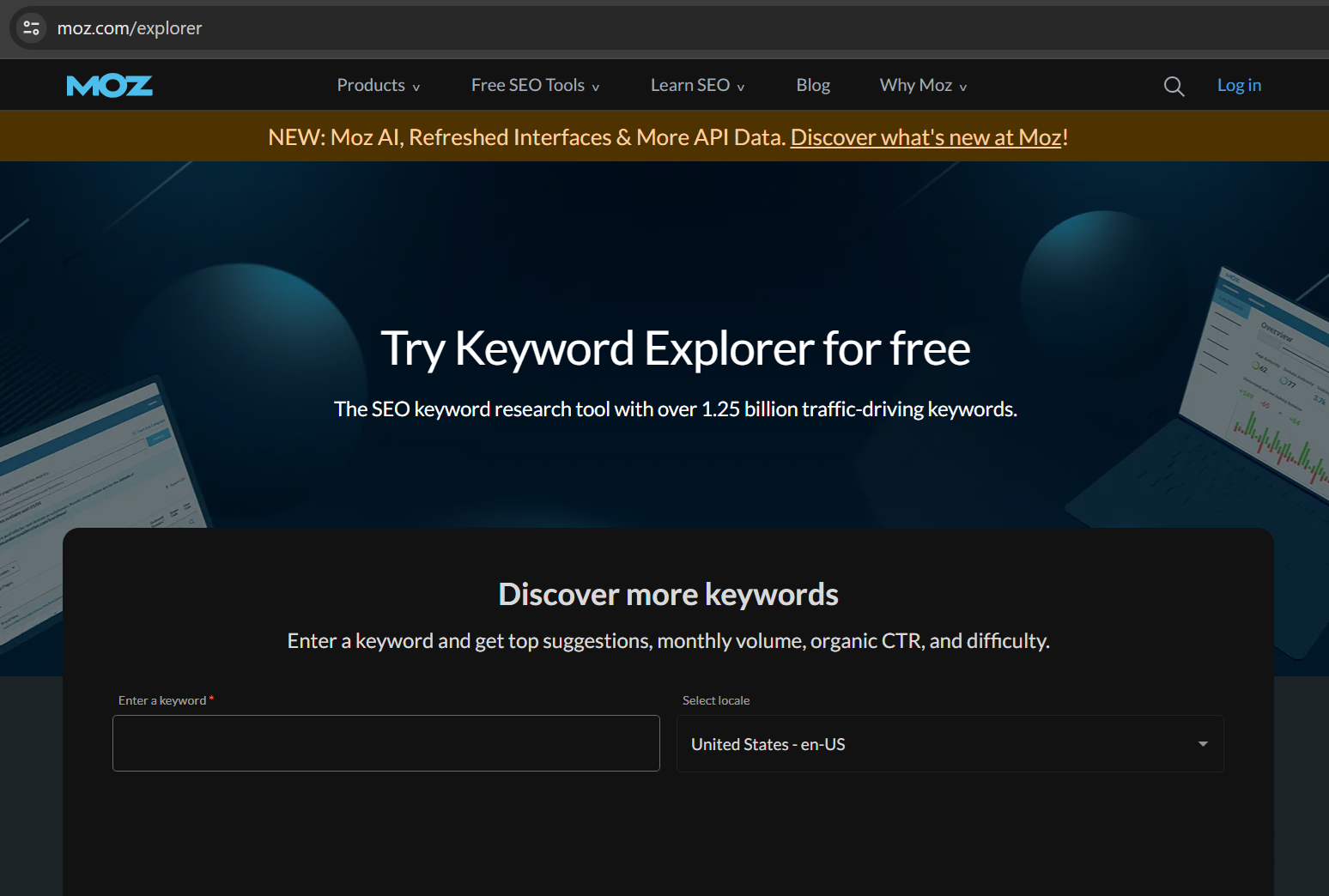Artificial Intelligence (AI) is no longer a futuristic concept; it’s a present reality that is reshaping the business landscape. As we step into 2024, AI tools are becoming indispensable assets for businesses aiming to achieve exponential growth and heightened productivity. These tools are designed to enhance various aspects of business operations, from knowledge management and content creation to workflow automation and customer service. This article looks into the top 10 AI tools that are leading the charge in 2024, offering a detailed exploration of how each tool contributes to business growth and productivity.
1. Notion AI: The Future of Knowledge Management
Notion AI is a powerful tool designed to revolutionize knowledge management, note-taking, and task management. In today’s fast-paced business environment, managing information efficiently is crucial for success.
Notion AI stands out by automating content creation, summarizing notes, generating task lists, and integrating seamlessly with project management workflows. This tool helps teams stay organized, reducing the time spent on routine tasks. By leveraging AI, Notion can automatically suggest relevant information, create summaries of lengthy documents, and even generate content drafts based on user inputs.
Imagine a scenario where a project manager needs to compile notes from a meeting involving multiple stakeholders. Traditionally, this would involve hours of reviewing, summarizing, and organizing information. With Notion AI, the entire process is streamlined. The AI can automatically highlight key points, create action items, and even draft follow-up emails, allowing the manager to focus on higher-level decision-making.
Notion AI’s ability to integrate with other project management tools further enhances its utility. Teams can use it to create a unified workspace where all relevant information is accessible and actionable, leading to improved collaboration and productivity.
2. ChatGPT (OpenAI): Transforming Customer Interaction and Creativity
ChatGPT by OpenAI is a conversational AI tool designed to enhance customer service, content generation, and brainstorming processes. Its versatility makes it a valuable asset for businesses across industries.
ChatGPT excels in drafting emails, providing customer support, and assisting with creative tasks. It reduces the time spent on routine communication by automating responses and generating content ideas. For instance, businesses can use ChatGPT to handle customer inquiries, allowing human agents to focus on more complex issues. This not only improves response times but also enhances customer satisfaction.
In the realm of content creation, ChatGPT is a game-changer. Marketing teams can use it to brainstorm ideas, draft blog posts, and create social media content. Its ability to understand context and generate relevant text makes it an invaluable tool for creative professionals. Additionally, ChatGPT can assist in generating personalized content for customers, enhancing engagement and driving conversions.
One of the key advantages of ChatGPT is its continuous learning capability. As it interacts with users, it becomes better at understanding their needs and preferences, leading to more accurate and relevant responses over time.
3. Jasper: The Content Generation Powerhouse
Jasper is an AI-driven tool specifically designed for content generation. In an era where content is king, businesses need efficient ways to produce high-quality content that resonates with their audience.
Jasper specializes in creating marketing content, blog posts, social media updates, and product descriptions. Its ability to produce content at scale makes it an essential tool for businesses looking to enhance their online presence. With Jasper, content teams can quickly generate ideas, draft articles, and optimize content for search engines, ensuring that their message reaches the right audience.
Jasper’s AI algorithms are trained on vast amounts of data, enabling it to understand various writing styles and tones. This allows businesses to maintain a consistent voice across all their content, whether it’s a formal press release or a casual social media post.
Moreover, Jasper’s integration with SEO tools ensures that the content it generates is not only engaging but also optimized for search engines. This dual focus on creativity and technical precision makes Jasper a powerful tool for content marketers.
4) Aisera.io: AI-Driven Customer Service and IT Support
Aisera.io is designed to enhance customer service, IT support, and employee experience through advanced AI and automation. The platform leverages natural language processing (NLP), machine learning, and AI to provide efficient, personalized, and automated service experiences. Its primary goal is to reduce operational costs, improve response times, and increase satisfaction by automating routine tasks and resolving issues in real-time across multiple communication channels.
Conversational AI and NLP: Uses advanced natural language processing to understand and respond to user queries across text and voice, simulating human-like interactions.
Automated Service Desk: Integrates with ITSM tools (e.g., ServiceNow, Jira) to automatically resolve common IT issues, reducing the workload on IT staff.
Self-Service Capabilities: Empowers users to solve issues independently through knowledge base articles, guides, and automated workflows.
Proactive Resolution and Predictive Analytics: Identifies and addresses potential issues before they impact users, enhancing system reliability.
AI-Driven Insights and Reporting: Provides analytics and recommendations to optimize service delivery and support operations.
Omnichannel Support: Enables interactions through various channels like chat, email, SMS, and voice, offering flexible user support options.
Seamless Integration: Easily integrates with CRM systems, ITSM tools, and collaboration platforms, fitting smoothly into existing workflows.
Scalability and Customization: Adapts to the needs of businesses of all sizes, offering customization to suit specific industry requirements.
Continuous Learning and Improvement: The AI continuously learns from interactions, improving its accuracy and effectiveness over time.
Aisera.io is a comprehensive AI platform focused on automating and enhancing customer service and IT support. Its features include conversational AI, self-service options, proactive issue resolution, and deep analytics, all of which contribute to streamlined operations, reduced costs, and improved user satisfaction. The platform’s ability to integrate with existing tools and scale to different business sizes makes it a versatile solution for modern enterprises.
5. Zapier: The Automation Maestro
Zapier is a workflow automation tool that connects various apps and services, enabling businesses to automate repetitive tasks and improve workflow efficiency.
Zapier’s ability to automate tasks by integrating different platforms is its standout feature. For example, a business can set up a workflow where customer data from a CRM is automatically updated in an email marketing tool whenever a new lead is generated. This reduces the need for manual data entry and ensures that information is always up-to-date across platforms.
In addition to data synchronization, Zapier can automate notifications, task assignments, and even social media postings. This level of automation allows businesses to scale their operations without a corresponding increase in workload. By handling routine tasks, Zapier frees up time for employees to focus on strategic initiatives that drive growth.
Zapier’s user-friendly interface makes it accessible even to those with limited technical knowledge. Businesses can create custom workflows without needing to write code, making it a versatile tool for companies of all sizes.
6. Grammarly: Elevating Communication Standards
Grammarly is a writing assistant that improves communication by checking grammar, tone, and style, while also offering suggestions for clarity and conciseness.
Grammarly’s ability to enhance written communication is unmatched. Whether it’s drafting emails, writing reports, or creating marketing copy, Grammarly ensures that the content is clear, error-free, and engaging. Its tone detection feature is particularly useful in business settings, as it helps writers adjust their language to suit the audience and context.
For example, an email to a client requires a different tone than an internal memo. Grammarly can detect these nuances and suggest adjustments, ensuring that the message is communicated effectively. This not only improves the quality of communication but also enhances the professional image of the business.
Grammarly’s integration with popular platforms like Microsoft Word, Google Docs, and email clients makes it a seamless addition to existing workflows. As businesses increasingly rely on written communication, Grammarly’s ability to enhance clarity and precision becomes indispensable.
7. HubSpot AI Tools: The Complete Growth Suite
HubSpot AI Tools are designed to automate marketing, sales, and customer service functions, making it easier for businesses to grow and scale.
HubSpot’s AI-driven tools offer a range of features, including lead scoring, email marketing automation, and customer insights. By analyzing data from various touchpoints, HubSpot can help businesses identify high-potential leads and tailor their marketing efforts accordingly.
For instance, HubSpot’s AI can analyze a customer’s behavior on a website and assign a lead score based on their likelihood to convert. This enables sales teams to prioritize their efforts on the most promising leads, increasing the efficiency of the sales process.
In addition to lead scoring, HubSpot’s AI tools can automate email campaigns, ensuring that customers receive timely and relevant communications. This level of personalization helps businesses build stronger relationships with their customers, leading to increased loyalty and higher conversion rates.
HubSpot’s comprehensive suite of AI tools makes it a powerful platform for businesses looking to enhance their marketing, sales, and customer service efforts.
8. Tableau with Einstein AI (Salesforce): Data-Driven Decision Making
Tableau, integrated with Einstein AI from Salesforce, is a data visualization and business intelligence tool that helps businesses make data-driven decisions.
Tableau’s ability to create interactive and visually appealing dashboards is enhanced by Einstein AI’s predictive analytics capabilities. This combination allows businesses to not only visualize their data but also forecast future trends and identify potential opportunities for growth.
For example, a retail business can use Tableau to analyze sales data and identify patterns in customer behavior. With Einstein AI, they can take this a step further by predicting future sales trends based on historical data. This enables the business to make informed decisions about inventory management, marketing strategies, and resource allocation.
Tableau’s intuitive interface makes it accessible to users of all skill levels, allowing teams across the organization to harness the power of data. By providing actionable insights, Tableau with Einstein AI empowers businesses to stay ahead of the competition and drive growth.
9. Surfer SEO: Mastering the Art of Online Visibility
Surfer SEO is an AI-powered tool designed to help businesses improve their search engine rankings and increase online visibility.
Surfer SEO analyzes content and offers data-driven suggestions to optimize it for search engines. This includes recommendations for keyword usage, content structure, and on-page elements like headings and meta tags.
For businesses, having a strong online presence is crucial for attracting new customers. Surfer SEO provides the tools needed to optimize content for search engines, ensuring that it ranks well for relevant keywords. This can lead to increased website traffic, higher conversion rates, and ultimately, more sales.
Surfer SEO’s integration with content management systems like WordPress makes it easy to implement its recommendations. Content creators can use the tool to optimize their work in real-time, ensuring that each piece of content is fully optimized before it’s published.
10. Copy.ai: Streamlining the Content Creation Process
Copy.ai is an AI-powered copywriting tool that helps businesses generate marketing copy, product descriptions, and social media posts.
Copy.ai’s ability to produce high-quality copy in a matter of seconds makes it a valuable tool for businesses looking to streamline their content creation process. Whether it’s crafting an engaging social media post or writing a detailed product description, Copy.ai can generate text that is both creative and relevant.
One of the key advantages of Copy.ai is its ability to understand the context and generate copy that aligns with the brand’s voice and message. This ensures that the content is not only accurate but also resonates with the target audience.
For businesses that need to produce large volumes of content, Copy.ai offers a scalable solution. It can generate multiple variations of a piece of content, allowing marketers to choose the version that best fits their needs. This flexibility and efficiency make Copy.ai an essential tool for content-driven businesses.
11. Miro AI: The Collaborative Whiteboard of the Future
Miro AI is a collaborative online whiteboard platform that enhances productivity and team collaboration through AI-powered features.
Miro AI facilitates brainstorming sessions, project planning, and design thinking workshops by providing a digital space where teams can collaborate in real-time. Its AI features enhance productivity by suggesting ideas, organizing information, and providing templates that guide the creative process.
For example, during a brainstorming session, Miro AI can suggest related concepts or visualizations based on the inputs provided by the team. This not only speeds up the brainstorming process but also ensures that all relevant ideas are explored.
Miro AI’s ability to integrate with other tools like Slack, Google Drive, and Jira makes it a versatile platform for teams working on complex projects. By bringing together different tools and data sources, Miro AI creates a unified workspace that fosters collaboration and innovation.
Conclusion: Harnessing the Power of AI for Business Success
The AI tools highlighted in this article represent the cutting edge of technology in 2024. Each tool brings unique capabilities that can significantly enhance business growth and productivity. Whether it’s automating routine tasks, improving communication, generating content, or making data-driven decisions, these AI tools are transforming the way businesses operate.
As we move further into the digital age, the adoption of AI tools will become increasingly important for businesses looking to stay competitive. By leveraging the power of AI, companies can streamline their operations, improve efficiency, and drive innovation, ultimately leading to sustained growth and success.
In a world where change is the only constant, these AI tools provide the agility and adaptability that businesses need to thrive. As AI continues to evolve, we can expect even more innovative solutions that will further revolutionize the business landscape. The future of business is here, and it’s powered by AI.





